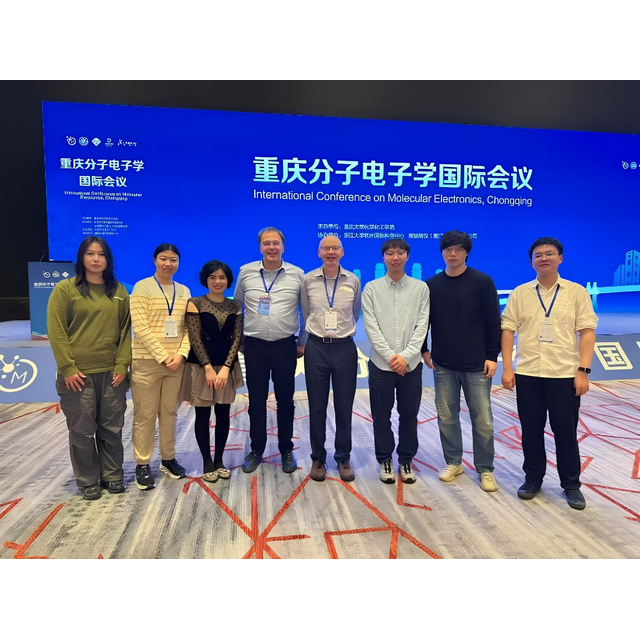The C2N is currently contributing to a long-standing international collaboration through the theoretical modeling expertise of Dr. Yannick Dappe, who recently joined the laboratory.
For over a decade, Dr. Yannick Dappe has played a key role in a high-level trilateral collaboration with Prof. Li Yang (XJTLU, China) and Prof. Richard Nichols (University of Liverpool, UK), thanks to his expertise in theoretical modeling. Together, these researchers are pushing the boundaries of molecular electronics by combining modeling, cutting-edge experimental techniques, and innovative nanoscale devices.
This scientific partnership between France, China, and the United Kingdom has led to major advances in the field of molecular junctions, notably through the introduction of graphene electrodes in scanning tunnelling microscopy (STM) experiments. These results, published in leading journals (Nano Letters, Journal of Physical Chemistry Letters, Nanoscale, ACS Applied Nano Materials), have highlighted the potential of gold–graphene hybrid junctions for improving electronic conduction at the molecular scale.
Dr. Yannick Dappe, CNRS researcher at C2N, brings crucial theoretical modeling expertise to interpret and predict the electronic properties of these complex molecular systems. His work, in synergy with experiments carried out in Liverpool and Suzhou, has contributed to renewing the understanding of charge transport in asymmetric or redox-active junctions.
Beyond scientific achievements, this collaboration also fosters research training through joint PhD supervision and the development of international academic exchange programmes. Dr. Dappe is also a visiting professor at XJTLU for the period 2024–2027, further strengthening ties between the teams.1
1 https://mp.weixin.qq.com/s/wgSC6sqUJz-Oz2FDjiAMug
photo : (from third left) Prof. Li Yang, Dr. Yannick Dappe, Prof. Richard Nichols and Prof Li. Yang’s research group attending the international conference on molecular electronics, Chongqing





